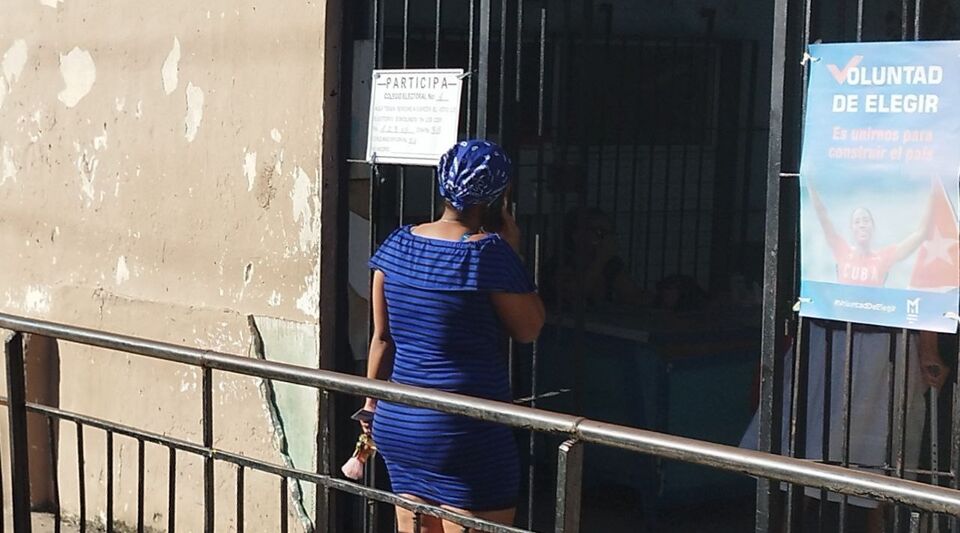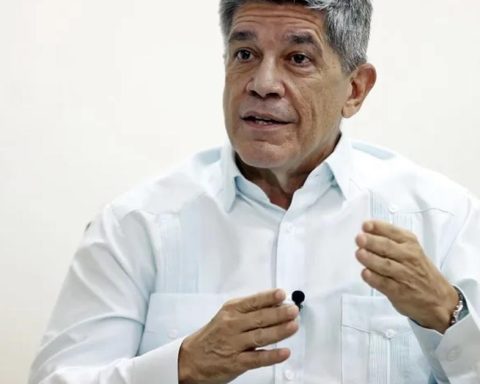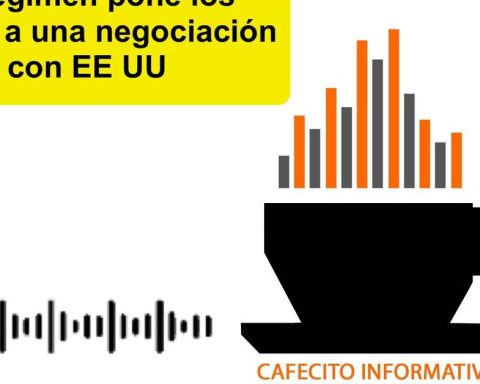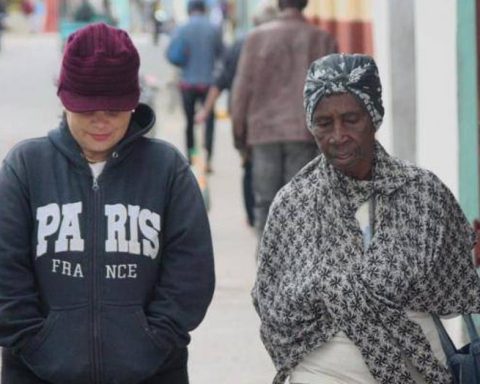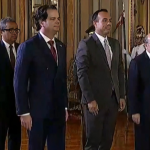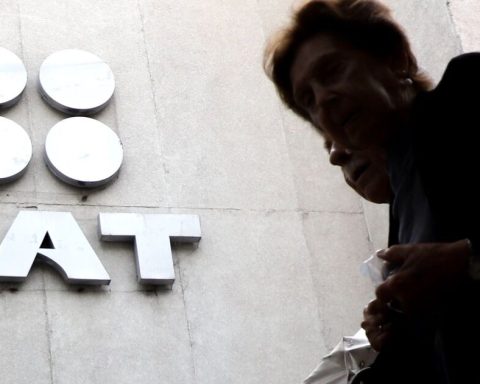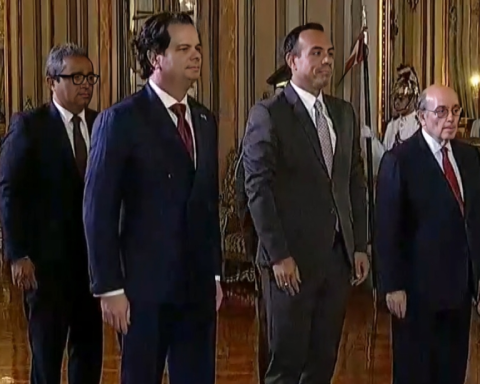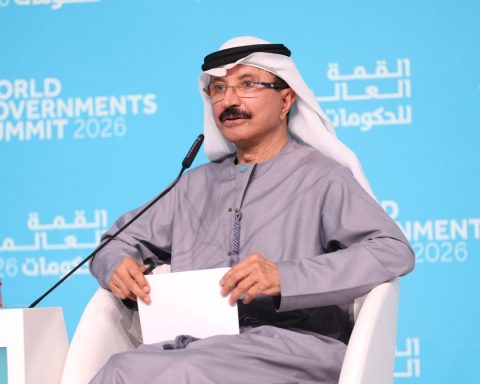(EFE) released this Wednesday.
In these elections the highest percentage of abstention was registered since 1959, 31.44%, according to official figures collated by EFE.
Although this data may be normal in other latitudes, it is unusually high for Cuba. The Island is used to participation percentages even above 90%, although they have progressively decreased in recent years.
In Havana, abstention was 42.89%, an unprecedented rate and the highest among the 15 provinces, while in Isla de la Juventud it was 31.63% and in Matanzas, 31.14%.
In Havana abstention was 42.89%, an unprecedented rate and the highest among the 15 provinces, while in Isla de la Juventud it was 31.63% and in Matanzas, 31.14%.
These three western territories, among the most damaged by Ian, are among the five with the least participation. In the previous municipal elections (2017) they were not among the most abstentionists.
In addition, three of the five provinces in which abstention increased the most between the municipal elections in 2017 and those held in November were also western: Havana (+27 percentage points, the one with the highest growth), followed in third and fourth place. by its neighbors Mayabeque (+23.01) and Artemisa (+22.69).
Pinar del Río, the territory most affected by Ian, registered the highest percentage of blank votes, 7%. For its part, in Mayabeque practically one in 10 voters annulled their vote.
For three experts consulted by EFE, this demobilization is a form of rejection, which in a Western liberal democracy could be translated as a “vote of punishment.”
The country’s president, Miguel Díaz-Canel, already used this expression in the referendum on the Family Code and advocated incorporating it in the face of controversial issues and “in the midst of a complex situation”, in reference to the serious economic and energy crisis that the country suffers.
Experts consider that abstention, in the Cuban case, has a message. “Not voting in Cuba is a very important act of rebellion,” Leandro Querido, executive director of Electoral Transparency and author of the book, told EFE This is how you vote in Cuba.
In similar terms, Diosnara Ortega, a Cuban sociologist and director of the Chilean School of Sociology of the Silva Henríquez Catholic University, expresses herself, who speaks of “a politicized abstention.”
Diosnara Ortega, a Cuban sociologist and director of the Chilean School of Sociology at the Silva Henríquez Catholic University, expresses herself in similar terms, speaking of “a politicized abstention.”
“Although in the rest of the world (abstention) responds to a process of depoliticization (…) in Cuba it is the opposite because (citizens) find in this resource a way to dissent from a power structure, not only from a government,” he told EFE.
Some experts go further in this idea and add null and blank votes to abstention, to what they call the rejection rate.
In the municipal elections in November, this rejection rate reached 38.91% in the country as a whole, which is 17 percentage points more than in 2017. In comparison, that of the Family Code was 30.13% (without counting the “no”) and in the municipal elections of 2017 it stood at 21.59%.
Here the western provinces stand out again: Havana (49.75%) in first place and Mayabeque (39.85%) in third, followed by Isla de la Juventud (39.18%) and Artemisa (38.92%). .
The region also stands out in the increase in the rejection rate compared to the municipal ones of five years ago. Top of the list is Havana (+26.07 percentage points), the Cienfuegos power plant (+23.85), Mayabeque (+23.36), Artemisa (+21.07) and Isla de la Juventud (+20.57). .
The president of the National Electoral Council (CEN), Alina Balseiro, affirmed that this rejection rate “is not a legal term” and considered that the results of these elections cannot be compared with those of previous elections, because they are “processes of a different nature” and by the changes that the country has undergone since then.
The experts believe that the reasons for the abstention are multifactorial, although they coincidentally point to the boredom and frustration of the population after two years of serious economic and energy crisis as a common element.
The experts believe that the reasons for the abstention are multifactorial, although they coincidentally point to the boredom and frustration of the population after two years of serious economic and energy crisis as a common element.
The sum of the pandemic, the tightening of the US sanctions against Cuba and the errors in internal economic policy have caused a great shortage of basic products –from food to medicines and fuel–, galloping inflation, prolonged and frequent blackouts, and a massive emigration.
In the West, the damage caused by Ian is added, which with winds of up to 200 kilometers per hour affected more than 100,000 homes and serious damage to the countryside. Damage repair work is progressing slowly despite efforts.
The experts go beyond the economic and point out that the electoral criticism points to the entire political system in Cuba. This is what Ortega and Hilda Landrove, researcher, Cuban cultural promoter and doctoral candidate in Mesoamerican Studies at the National Autonomous University of Mexico (UNAM) point out.
The latter reminds EFE that these demobilization percentages were not registered even in the so-called special period, the serious economic crisis that followed the fall of the Soviet bloc.
“In the Cuba of 15-20 years ago, the unanimity discourse continued (…) We cannot forget that when there are elections, what comes into play is the validation of a system”
“In the Cuba of 15-20 years ago, the unanimity discourse continued (…) We cannot forget that when there are elections, what comes into play is the validation of a system,” concludes Landrove.
Despite the adverse data, Alina Balseiro described the data, when presenting it yesterday, as “a victory for the people.” The president of the CEN even went so far as to say that the participation was a “clear expression of support” and “majority”.
Electoral transparency, who already made a critical statement at the end of the first roundmade public a second text in which he insisted on the need to carry out an audit to verify the data of an election that is “unverifiable”.
________________________
Collaborate with our work:
The team of 14ymedio He is committed to doing serious journalism that reflects the reality of deep Cuba. Thank you for accompanying us on this long road. We invite you to continue supporting us, but this time becoming a member of our newspaper. Together we can continue transforming journalism in Cuba.
